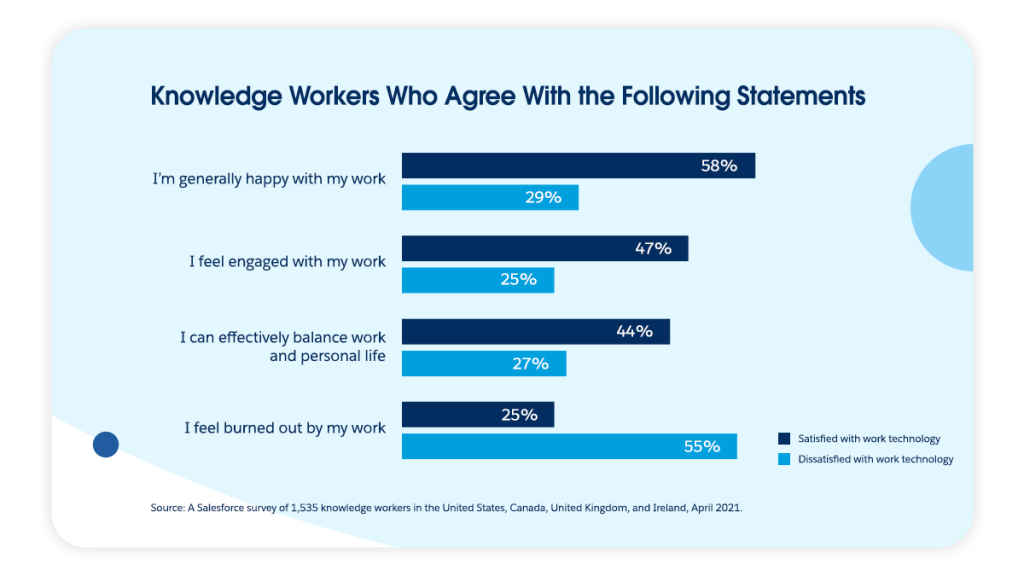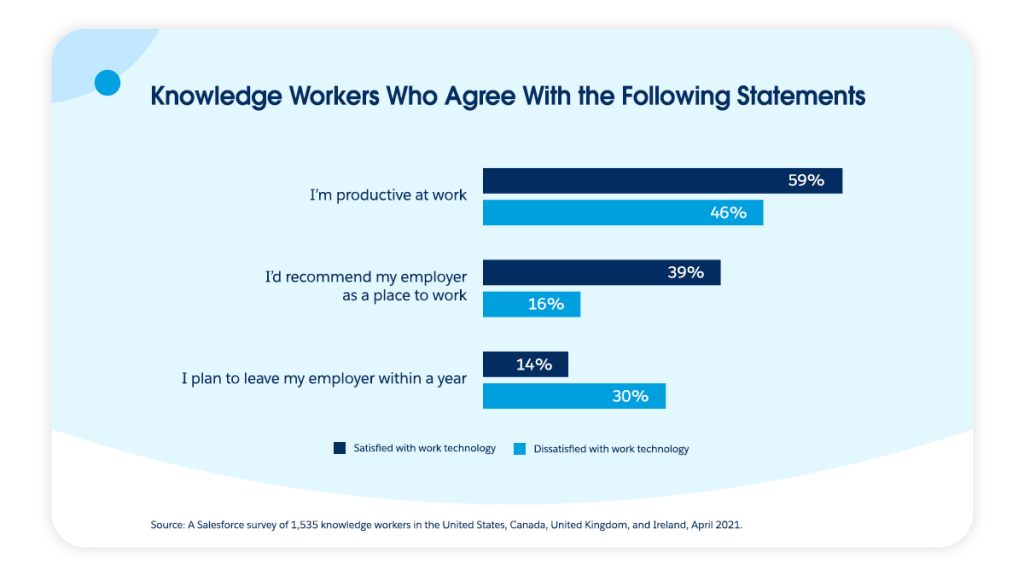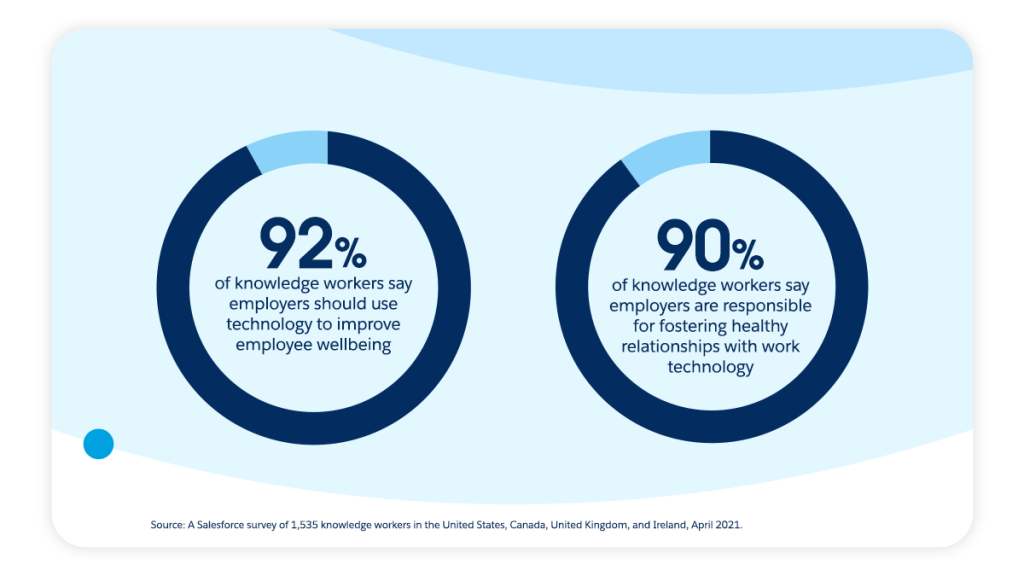Quick Take: Technology made it possible for a distributed workforce to be productive during the pandemic. But its increasingly prominent role in employees’ lives has come under the microscope. Research shows a gap between what employees say would help them foster healthier relationships with technology and what businesses actually provide.
Employee wellbeing — and specifically, the shared responsibility of employers and employees in fostering it — has been a hot topic as the pandemic and its aftereffects wear on.
Recognizing how important this topic will remain, and the role it can play as a provider of enterprise technology, Salesforce is introducing a suite of wellbeing capabilities for Work.com. These tools and resources will empower businesses and employee to maintain a healthy relationship with work and technology.
To better understand how employees view this intersection of technology and wellbeing, the resources required, and the impacts on employees and businesses alike, Salesforce commissioned a survey of over 1,500 knowledge workers.* A summary of the key findings is shared below.
The pandemic transformed our relationship with work technology
While back-to-back video meetings may bring stress, the workforce overwhelmingly views technology’s impact on work life over the course of the pandemic as positive. In fact, today’s work technology may very well have salvaged many jobs that would have otherwise been lost: nearly three-quarters of those surveyed doubt that they could have conducted their jobs with technology from even five years ago.
Employee wellbeing correlates with technology satisfaction
Recent research has underscored the importance of employee experience, and over a year of remote work has put employee wellbeing, specifically, in the hot seat. The data shows a relationship between satisfaction with work technology and overall employee wellbeing. Those dissatisfied with their work technology, for example, are more than twice as likely as those who are satisfied to say they feel burned out at work, and half as likely to say they’re generally happy with their work.
These impacts extend further. Those who are dissatisfied with their work technology are more than twice as likely to plan to leave their job in the next year, less than half as likely to recommend their employer to potential employees, and less likely to feel generally productive. In other words, subpar technology could lead not only to unsatisfied employees, but negative business outcomes.
Employee wellbeing is the next frontier of work technology
Employees view their employers as responsible for fostering healthy relationships with the technology they need to do their jobs. What’s more, they believe that technology itself can be a valuable tool in this pursuit.
Resources that address the five factors of employee wellbeing — psychological, physical, professional, financial, and community — are prized. However, few employers have provided these resources, such as those Salesforce has introduced to Work.com.
Employees will remain distributed and their work will become increasingly dependent on an expanding and evolving set of technologies. In this landscape, businesses will need to reevaluate not only how to keep employees engaged and productive, but healthy and happy.
Survey methodology
Salesforce conducted a double-blind online survey of knowledge workers* in the United States, Canada, United Kingdom and Ireland. Data was collected between April 19 and April 22, 2021 and yielded 1,535 responses.
*Knowledge workers’ work is primarily mental labor (i.e, professional services, business management) over manual or task-based labor (i.e, construction, onsite manufacturing, warehouse operations, retail store service/operations, food service/operations).


















